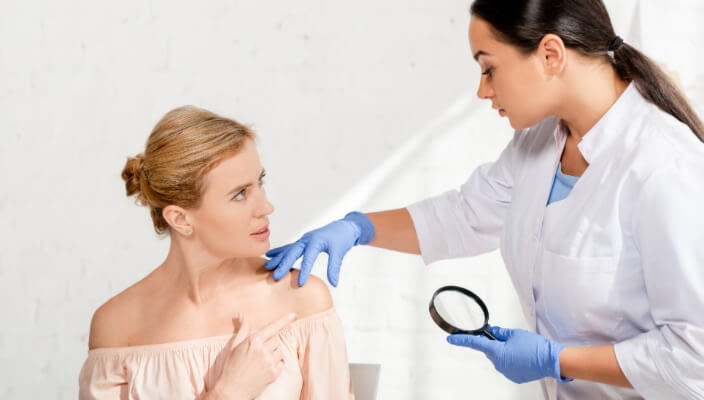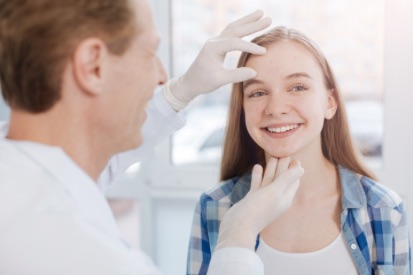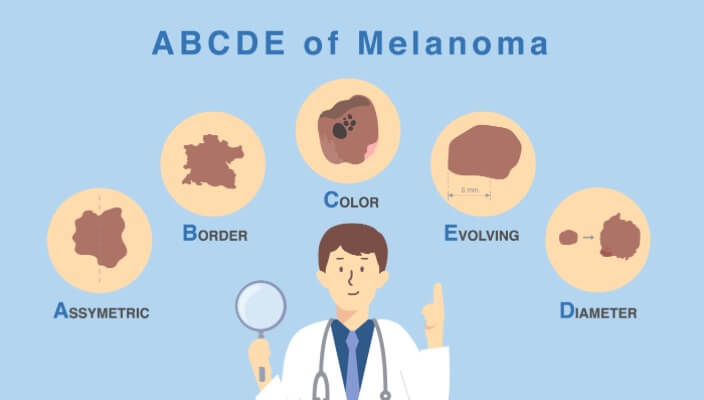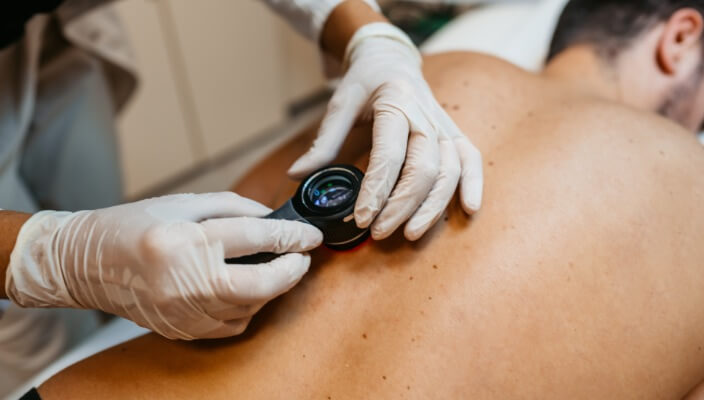What Happens If Your Skin Cancer Screening Shows Something Suspicious?
 With skin cancer affecting more than four million Americans each year, it's a growing concern for people across the country. As the most common form of cancer, regular skin cancer screenings are crucial to catching potentially dangerous lesions before they become life-threatening. While some skin abnormalities are benign, others can evolve into more serious forms of cancer. At Keystone Dermatology Partners, we provide expert skin cancer screenings and follow-up care, ensuring you maintain peace of mind and the best possible outcome.
With skin cancer affecting more than four million Americans each year, it's a growing concern for people across the country. As the most common form of cancer, regular skin cancer screenings are crucial to catching potentially dangerous lesions before they become life-threatening. While some skin abnormalities are benign, others can evolve into more serious forms of cancer. At Keystone Dermatology Partners, we provide expert skin cancer screenings and follow-up care, ensuring you maintain peace of mind and the best possible outcome.
What to Do if Your Screening Raises Concerns
If your recent skin cancer screening reveals something suspicious, the first step is to consult with a trusted dermatologist. At Keystone Dermatology Partners, we specialize in diagnosing and treating a wide range of skin conditions, including cancers like:
Melanoma: The most dangerous type of skin cancer, which can spread rapidly if left untreated.
Basal cell carcinoma: The most common type of skin cancer, often caused by sun exposure but typically less aggressive.
Squamous cell carcinoma: Another common form of skin cancer that can become more dangerous if not addressed early.
Actinic keratosis: A pre-cancerous lesion that can develop into squamous cell carcinoma if ignored.
Merkel cell carcinoma: A rare but aggressive form of skin cancer.
Atypical fibroxanthoma: A skin tumor usually found on sun-exposed areas, more common in older adults.
What to Expect During Your Dermatologist Visit
Once you've scheduled an appointment with your dermatologist, they'll likely recommend a thorough examination of any suspicious moles or growths. This process often includes a dermatoscopy examination, where a handheld magnifying tool allows the dermatologist to inspect the lesion closely. The goal is to determine whether the mole or growth is benign or requires further investigation.
If the dermatologist suspects the growth may be cancerous, they may recommend a skin biopsy. A biopsy is a critical next step in determining whether the abnormality is cancerous, and there are several types of biopsies, depending on the size and type of growth:
Excisional biopsy
Punch biopsy
Shave biopsy
Waiting for Biopsy Results
One of the most stressful parts of the skin cancer screening process can be waiting for biopsy results. While it can take anywhere from a few days to a week to receive the results, your dermatologist at Keystone Dermatology Partners will keep you informed and provide timely updates. Rest assured, we're here to support you throughout the entire process, offering the information you need as soon as we receive it.
What If It’s Cancer? Treatment Options Explained
If your biopsy results indicate that you have skin cancer, it’s normal to feel overwhelmed, but there are effective procedures available depending on the type, size, and location of the lesion. Some of the procedure options your dermatologist may discuss include:
Excision: A surgical procedure to completely remove the cancerous lesion, often used for basal cell and squamous cell carcinomas.
Cryotherapy: This method involves applying liquid nitrogen to freeze and destroy the cancer cells.
Mohs surgery: A highly specialized procedure used to remove skin cancer layer by layer, preserving as much healthy tissue as possible. This is commonly used for basal cell and squamous cell carcinomas.
Radiation therapy: For more advanced or difficult-to-treat cancers, radiation may be recommended to target and destroy cancer cells.
Topical treatments: For certain types of superficial skin cancers, topical medications can help destroy cancer cells on the surface of the skin.
Why Regular Follow-Up is Essential
After receiving treatment, regular follow-up visits with your dermatologist are crucial. Skin cancer can recur, and routine monitoring of your skin can help detect any new or suspicious growths early. Whether you've had a mole removed or been treated for a more serious form of skin cancer, maintaining a close relationship with your dermatologist is key to protecting your health long-term.
At Keystone Dermatology Partners, we provide personalized follow-up care, ensuring that you're always informed and supported. We encourage our patients to perform regular self-exams and schedule routine skin checks with our team, as early detection can make a significant difference in treatment outcomes.
Get Expert Care and Peace of Mind
If you're concerned about the results of a recent skin cancer screening, don't wait—take action by consulting with a professional dermatologist. At Keystone Dermatology Partners, we are committed to providing comprehensive care, from initial screenings to biopsies and personalized treatment plans. Your health is our priority, and we're here to guide you every step of the way.

Compassionate Skin Cancer Treatment at Keystone Dermatology Partners
For more information on your skin cancer screening results or to schedule a consultation, contact Keystone Dermatology Partners today. Together, we can ensure your skin stays healthy and cancer-free.
Related Blogs

- Skin Cancer
- Skin Exams
With skin cancer cases rising year after year, it’s no surprise that people are itching to learn more about this life-threatening skin disease
Read More
- Skin Cancer
- Skin Exams
In this blog, we’re covering what you need to know about five dangerous skin cancers, including basal cell carcinoma (BCC), squamous cell carcinoma (SCC), malignant melanoma, merkel cell carcinoma, and kaposi sarcoma.
Read More
- Skin Cancer
- General Dermatology
- Skin Exams
Navigating the landscape of Total Body Skin Exams: Uncover the comprehensive process, understand why it matters for skin health, and gain insights into what to expect during these essential dermatological examinations.
Read More


